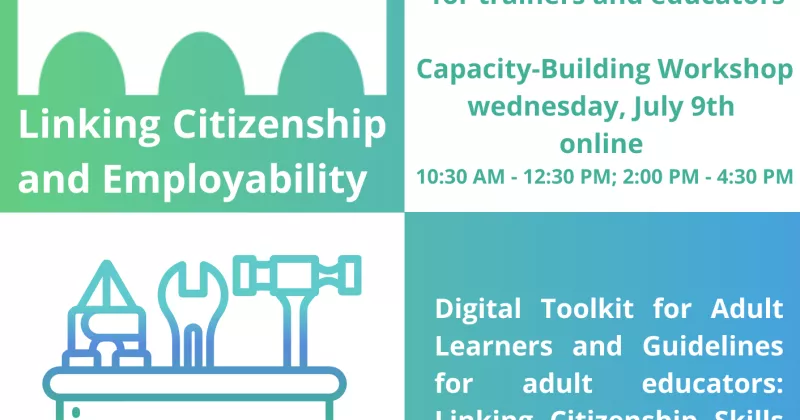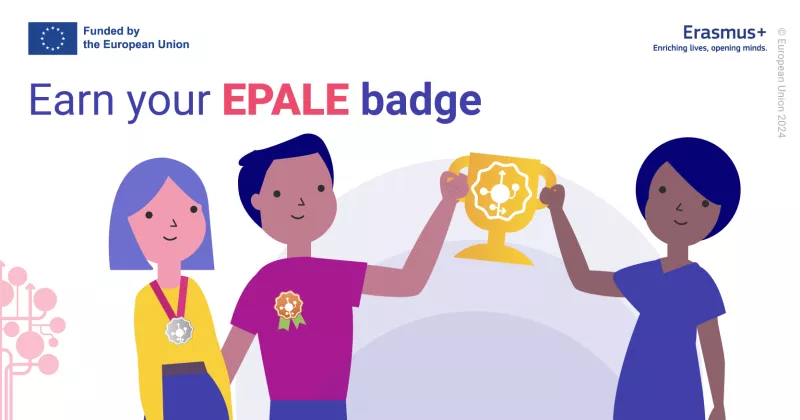Solidarity, Art, and Adult Learning


In the midst of a conference entitled In the Frictions: Fragments of Care, Health and Wellbeing in the Balkans in Zadar, Croatia, my interest was sparked by a presentation on Živi Atelje DK, an art space in Zagreb that defies cultural and structural divisions through its symbolic subversion of violence. The impact of this art collective became evident during a discussion I had attended previously in Belgium, where a long-lost mother and her daughter were joyfully reunited after five years apart. This moment of pure emotion and joy overwhelmed the audience and left us all in tears. I was inspired to explore the profound connection between art collectives, solidarity, and adult learning - a connection that goes beyond formal qualifications and job-seeking endeavours.
Živi Atelje DK
"Živi Atelje DK" derives its name from "živi," meaning living, encapsulates the essence of a thriving organism that evolves, communicates, adapts, and influences its surroundings. The term "Atelje," or Atelier, embodies a dynamic space of creativity, experimentation, camaraderie, and collaboration. The initials "DK" pay homage to Vera Dajht-Kralj, a revered artist and academic sculptor whose extensive collection serves as an enduring wellspring of inspiration for the artistic endeavours undertaken within this space.
Their “No Borders: Integration of Art” is a programme that includes several educational projects involving people of different horizons and origins including those born and raised in Zagreb, long-time residents, temporary visitors, refugees, asylum seekers, and people seeking subsidiary protection to work on integration, community- and peace-building, exploration of identity, and healing through art. The atelier also collaborates with other organisations such as the Center for Peace Studies (Okus Doma), and in 2017 they organised weekly teaching of Arabic to Croatian people in their gallery space.
Learning through and with art
Experiential learning, as emphasized by David Kolb (1984, in Cucos 2014), holds great significance in the aesthetic training of adults. This approach prioritizes the practical process of engaging in specific situations, placing importance on the experience itself rather than solely focusing on artistic achievements. For adults, the joy and fulfilment derived from creating something become paramount, encouraging active engagement and personal growth. Moreover, adults can assume roles such as cultural guides or artistic facilitators, promoting genuine values and fostering solidarity and integration within their communities. These shared experiences imbue their lives with new layers of meaning, strengthening connections and nurturing a sense of collective purpose.
An edited volume entitled Art and Social Justice Education (2012) serves as an inspiration and resource for educators seeking to develop transformative arts education curricula and integration projects. This comprehensive collection encompasses articles, essays, descriptive texts, images, and resources, all interconnected within a social justice framework and linked to the concept of culture as commons. By incorporating art into education, we can contribute to the construction of a more just world, transcending conventional models of discipline-based or expressive art education. Educators aiming to incorporate the arts and promote social justice within their curricula will find this collection invaluable.

Hands in Solidarity, Hands of Freedom mural, by Dan Manrique Arias. Photo by Terence Faircloth on flickr
European Initiatives and Projects
On a broader scale, European initiatives have played a pivotal role in promoting art and culture in adult education. These initiatives acknowledge the transformative potential of art in adult learning, fostering solidarity, inclusivity, and social change at a societal level. In addition to Živi Atelje DK, numerous European projects and initiatives focus on art and adult education, nurturing solidarity and personal development. One remarkable project is Creative Inclusion in Adult Education (CIAE), a two-year Erasmus+ project coordinated by the Cope Foundation in Ireland. CIAE facilitates inclusive learning environments through art, fostering integration and personal growth among adult learners.
We can also mention EPALE’s focus on Creativity and culture for social cohesion, as part of the 2022 thematic focuses: “Encouraging a dialogue across cultures and supporting individual empowerment and democratic consciousness in adult learners, cultural education is a major driver and enabler of social cohesion.” (EPALE 2022).
EPALE also initiated a similar initiative back in 2016, emphasising Art and Culture in Adult Education, and highlighting the transformative power of art in adult education and learning processes across Europe.
Furthermore, the EU actively supports projects that combine art and adult education. The Erasmus+ program, for instance, provides funding for transnational cooperation projects in the fields of education, training, youth, and sport. Within this framework, several projects have emerged, focusing on art-based adult learning, promoting solidarity and community engagement. These initiatives often involve partnerships between educational institutions, cultural organizations, and community centres, facilitating collaboration and knowledge exchange across borders.
For example, The Lifelong Learning Centre Oloklirosi in Heraklion, Greece, offers an Erasmus+ project and course on Inclusive Education through Arts. Participants in this course explore various tools and techniques to engage students' critical thinking and enhance their creativity. They learn how to apply active learning methods to foster diversity and inclusion while supporting children and young people in recognising and strengthening their personal and social skills.
The already mentioned project CIAE seeks to improve access to artistic knowledge and development for adult learners with disabilities. This project includes the development of guidelines, information resources, and tools to facilitate the inclusion of individuals with disabilities in adult art education, such as Good Practice Guidelines, a Knowledge Centre on Inclusive Arts, and an EASY READ TOOLKIT.
Moreover, ENCATC, an organisation primarily focused on cultural education and management, also addresses aspects related to social inclusion. Recognising the role of culture in promoting social cohesion and inclusivity, ENCATC fosters dialogue and collaboration among cultural practitioners, researchers, and policymakers. The organization aims to contribute to the development of initiatives that promote cultural diversity, social cohesion, and inclusive practices within the cultural sector.
Food for thought
These examples of academic writing and projects inspire us to contemplate the intersection of solidarity, art, and adult learning. They provide fertile ground for personal and collective growth, community integration, and social change.
Art spaces and ateliers serve as inclusive environments where individuals can explore their creative potential, acquire new skills, and forge meaningful connections with others.
Through experiential learning and shared artistic experiences, participants cultivate a sense of solidarity, empathy, and care for one another. These spaces not only nurture personal fulfilment but also challenge societal norms, address social justice issues, and contribute to the creation of a more inclusive and just world. As research on adult education and art continues to evolve, the transformative impact of solidarity and artistic expression on individuals and communities becomes increasingly recognized. By embracing the power of art in adult learning, we can actively contribute to a more compassionate and equitable society.
Bibliography
Cartier, C. (2023). Beyond the Binary: The Intersection of Care, Identity, and Integration [in progress]
Cucos, C. (2014). The Role of Arts in Adult Education. Procedia - Social and Behavioral Sciences, 142. https://doi.org/10.1016/j.sbspro.2014.07.692
Kolb, D. A. (1984). Experiential learning: Experience as a source of learning and development. Prentice-Hall.
Quinn, T. M., Ploof, J., & Hochtritt, L. J. (Eds.). (2012). Art and Social Justice Education: Culture as Commons. Routledge.




